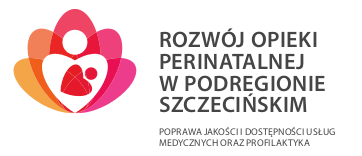It involves providing the child with skin-to-skin contact.
From the very first moments in the delivery room, a neonate and its mum experience their first physical contact. The awareness of the beneficial effect of touch and close contact with the mother has caused the so-called kangaroo care to grow in popularity and be practiced not only at home, but above all in neonatal hospital departments. During kangaroo care the infant can hear the mother’s heartbeat. It is gently swayed with breathing movements. The child learns to recognize its mother through smell and is additionally wormed with her own body heat. Such conditions are conducive to baby’s sleep, making it feel as if in the mother’s womb and causing it to fall asleep after a short while on the mother’s chest.
Since the practice of kangaroo care started, a series of studies have been conducted confirming its effectiveness. The practice allows maintaining regular heartbeat in babies, oxygen levels increase in the blood, episodes of respiratory system disturbances and risks of infection are reduced. It also has a positive influence on mental development and it supports motor skills. Babies that receive kangaroo care are calmer. The method strengthens parental competences, providing parents with more confidence, initiating a bond. Skin-to-skin contact has beneficial influence on lactation, by increasing milk production, making breastfeeding less problematic. Efficient feeding translates into quicker increase in body mass and consequently shorter hospitalization.
When to start? A healthy new-born can be given kangaroo care immediately after birth for at least 20 minutes. The child finds it easier to adapt to the surrounding world in a safe place in close contact with the mother. In the course of kangaroo care the mother may offer the baby her breast. Frequent feeding favours lactation and maintains it at an adequate level. Kangaroo care for children requiring medical support (for instance, children staying in the Intensive Care Unit) can be started depending on the condition of their health. Typically when preterm babies achieve respiratory and circulatory stability, kangaroo care may commence. In hospital conditions it is the baby’s parents that provide kangaroo care, but once the baby goes home, it can be given by any family member. In case of infants born at term, the duration of skin-to-skin contact is from 12 to 24 hours, whereas in case of babies born prematurely it is recommended that kangaroo care is provided as often as possible.
During kangaroo care a baby should wear a nappy, and the entire baby’s chest and tummy should touch the parent’s skin. It allows maintaining proper body temperature. There is no need to put on a cap indoors, however premature babies weighing less than a kilogram whose mother is walking around should have their head covered and wear socks. It is recommended that the baby’s back and side be covered with a blanket folded in half and in case of premature infants a blanket folded in four.
The child’s position during kangaroo care is very important. A full-term baby should lie vertically between the breasts, with its head resting on one of the breast, or slightly higher underneath the mother’s chin. Baby’s legs must be tucked up. When walking around, baby’s buttocks must be supported in order to ensure the sense of safety. Special elastic bands or shawls designated for kangaroo care are also available for support. Thanks to such accessories, every-day activities become much easier and a baby remains in constant contact with its mother.
Premature infants weighing less than a kilogram should be positioned at an angle, so that the head lies on one of the breasts and the body lies under the other one. It will permit calming the baby down and maintaining a fairly stable position. If the baby finds the position inconvenient, it will start wriggling about. During kangaroo care it is best not to do anything, just to enjoy precious moments with a new family member.



